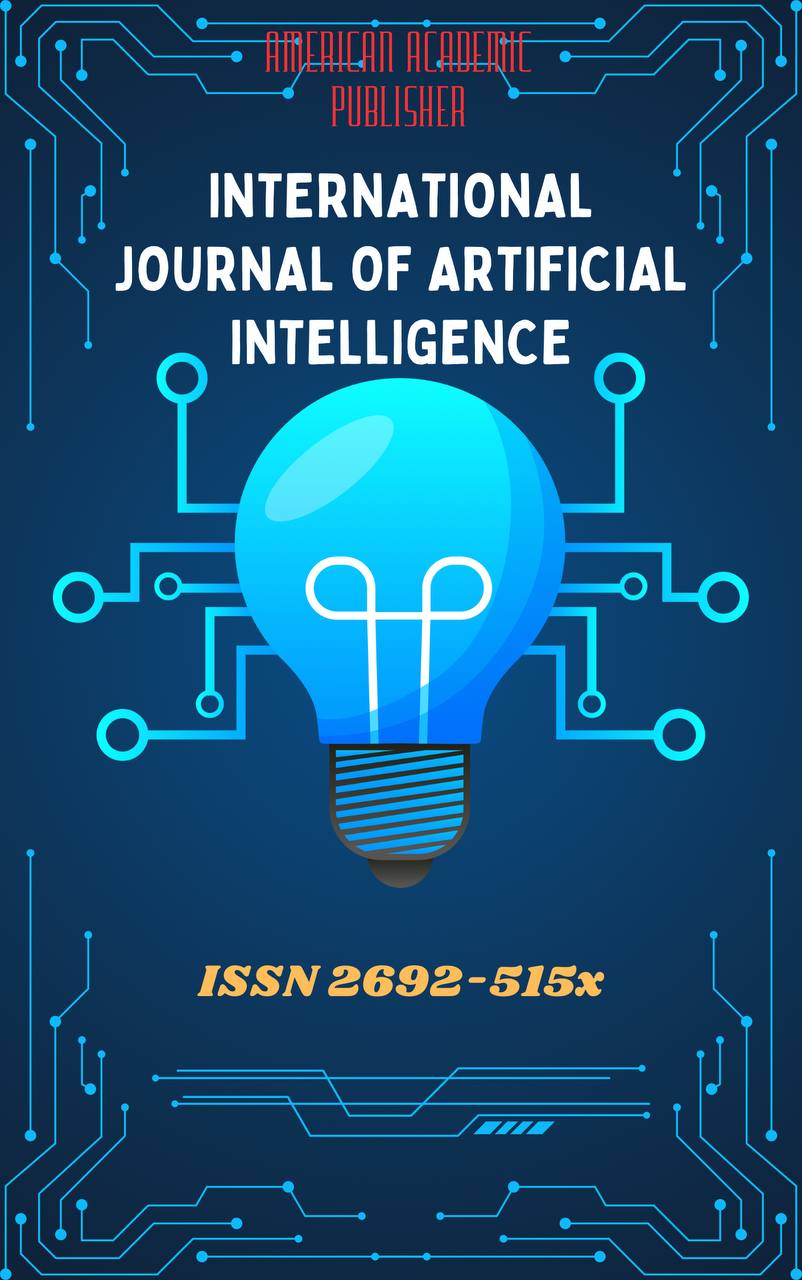 Articles
| Open Access |
Articles
| Open Access | INTEGRATION OF ARTIFICIAL INTELLIGENCE TOOLS IN TEACHING ENGLISH AS A FOREIGN LANGUAGE
Madrakhimova Nilufar Makhmudovna , English teacher, Khorezm regional Pedagogical Skills Center MA TESOL Webster University in Tashkent, UzbekistanAbstract
Significant developments in the field of education have also been brought about by the quick development of artificial intelligence (AI) technology. This article explores the integration of artificial intelligence (AI) tools in teaching English as a foreign language (EFL). It examines the benefits of personalized learning, automated assessment, language practice, and resource accessibility through AI. The challenges faced in implementation, such as technological infrastructure and teacher training, are also discussed. This research aims to provide insights into how AI can enhance EFL instruction while addressing potential obstacles to its effective use.
Keywords
Artificial Intelligence, English as a Foreign Language, Personalized Learning, Automated Assessment, Language Practice, Conversational skills, Pronunciation, Gamification, chatbots, Natural Language Processing (NLP) systems, virtual assistants.
References
Fitria, T. N. (2021). Artificial Intelligence (AI) in education: Using SI tools for teaching and learning process. Prosiding Seminar Nasional & Call for Paper STIE AAS, 4(1), 134-147. Retrieved from https://prosiding.stie-aas.ac.id/index.php/prosenas/article/view/106
Gutiérrez, L. (2023). Artificial Intelligence in language education: Navigating the potential and challenges of chatbots and NLP. Research Studies in English Language Teaching and Learning, 1(3), 180-191. https://doi.org/10.62583/rseltl.v1i3.44
Gwo-Jen Hwang & Ching-Yi Chang (2021). A review of opportunities and challenges of chatbots in education. Interactive Learning Environments. https://doi.org/10.1080/10494820.2021.1952615
Uysal, Banu Çiçek Başaran, & Yüksel, İlknur. (2024). SI-powered lesson planning: Insights from future EFL teachers. In Advances in Educational Technologies and Instructional Design Book Series (pp. 101-132).
Rashed, Zannan Alghamdy. (2024). Pedagogical and ethical implications of Artificial Intelligence in EFL context: A review study. English Language Teaching, 16(10), 87-87. https://doi.org/10.5539/elt.v16n10p87
Ghomi, M., & Redecker, C. (2019, May 2-4). Digital competence of educators (DigCompEdu): Development and evaluation of a self-assessment instrument for teachers' digital competence. 11th International Conference on Computer Supported Education (pp. 541-548), Heraklion, Greece. DOI: 10.5220/0007679005410548
Lampou, Rania. (2023). The integration of Artificial Intelligence in education: Opportunities and challenges. Review of Artificial Intelligence in Education, 4, e015. https://doi.org/10.37497/rev.artif.intell.educ.v4i00.15
Owoc, M. L., Sawicka, A., & Weichbroth, P. (2021). Artificial Intelligence technologies in education: Benefits, challenges and strategies of implementation. In Artificial Intelligence for Knowledge Management. SI4KM 2019. IFIP Advances in Information and Communication Technology, 599. Springer, Cham. https://doi.org/10.1007/978-3-030-85001-2 4
Gokcearslan, S., Tosun, C., & Erdemir, Z. G. (2024). Benefits, challenges, and methods of Artificial Intelligence (AI) chatbots in education: A systematic literature review. International Journal of Technology in Education (IJTE), 7(1), 19-39. https://doi.org/10.46328/ijte.600
Al-khreshehm, M. (2024). The future of artificial intelligence in English language teaching: Pros and cons of ChatGPT implementation through a systematic review. Language Teaching Research Quarterly, 43, 54-80. https://doi.org/10.32038/ltrq.2024.43.04
Murod Normuminov. (2024). Enhancing the teaching competence of future English teachers using SI-based technologies. Excellencia: International Multi-Disciplinary Journal of Education (2994-9521), 2(5), 311-315. https://doi.org/10.5281/. 64
Kasimova, M. A. (2024). Sun'iy intellekt orqali xorijiy til o'rganuvchilarining faolligini oshirish va ta'lim jarayoniga jalb qilish. O'zbekistonda xorijiy tillar. 10(1), 142-156. https://doi.org/10.36078/1710747133
Zaripov K.Ya ROLE OF ARTIFICIAL INTELLIGENCE IN TEACHING ENGLISH // EJTI. 2024. №5.
Taylakova Guli Bekmuratovna ARTIFICIAL INTELLIGENCE IN EDUCATION // EJAR. 2024. №7S.
Article Statistics
Downloads
Copyright License

This work is licensed under a Creative Commons Attribution 4.0 International License.

